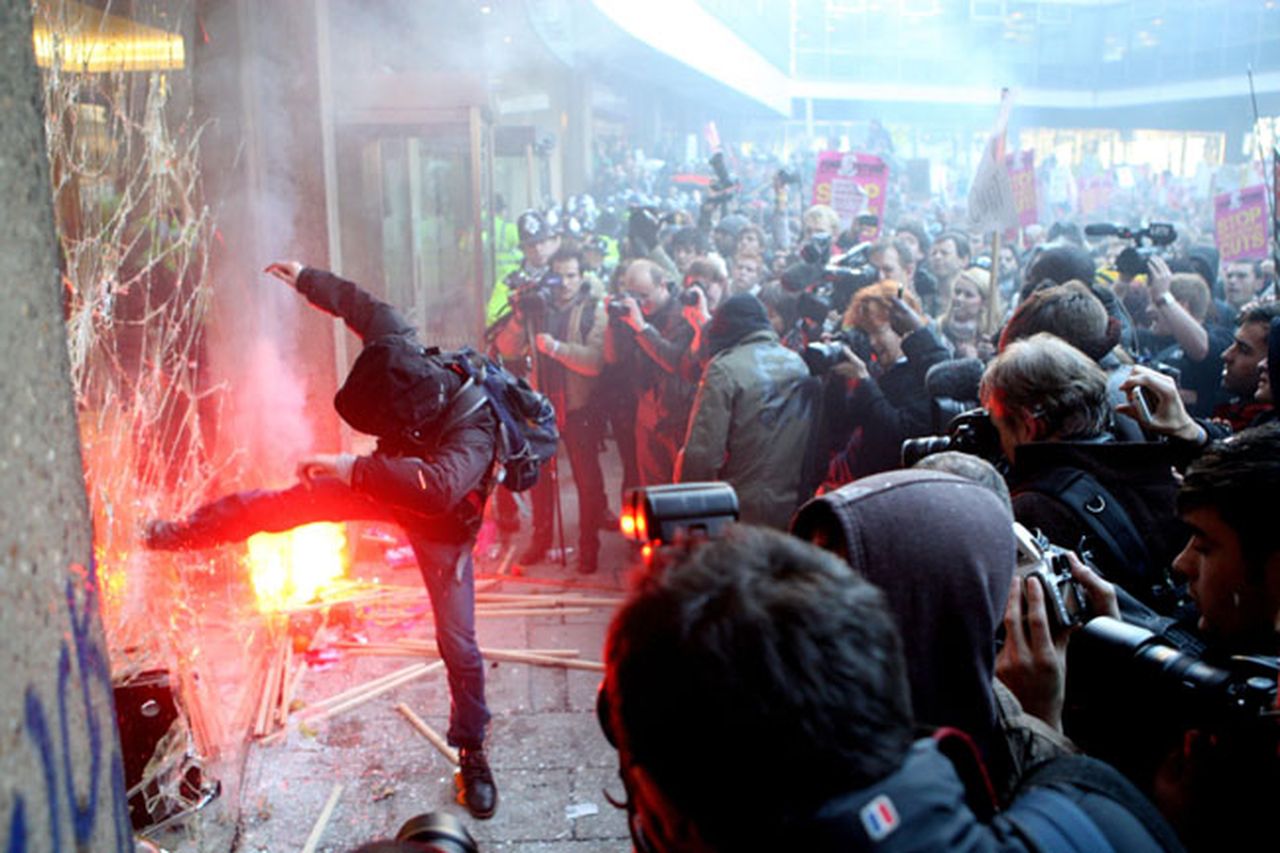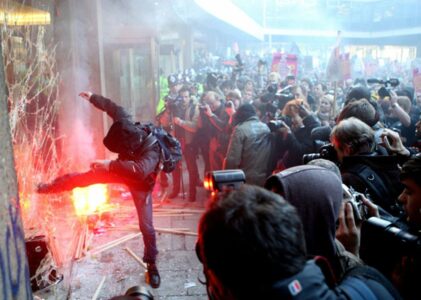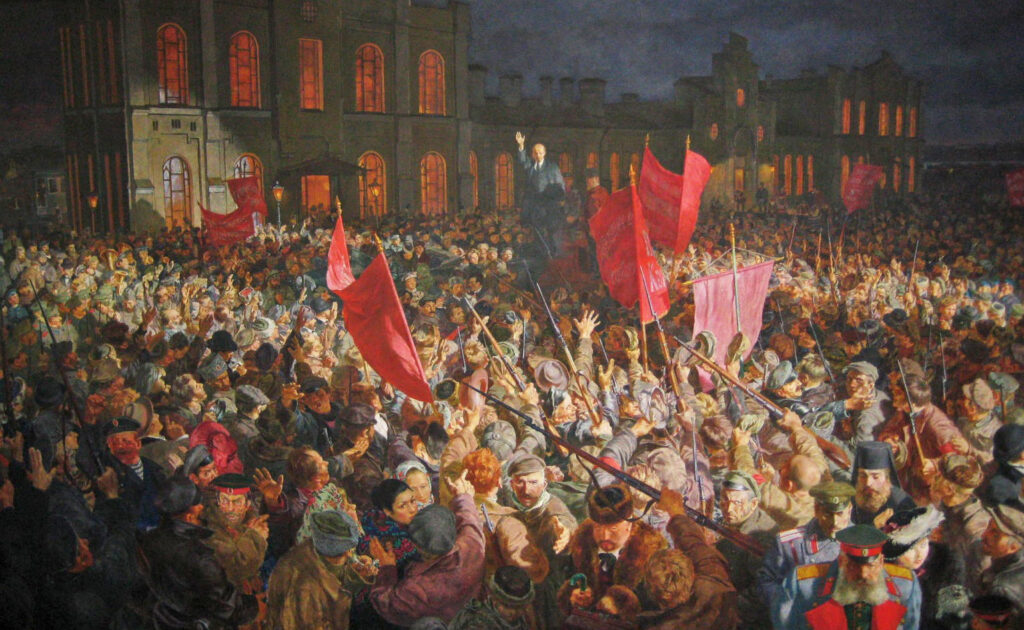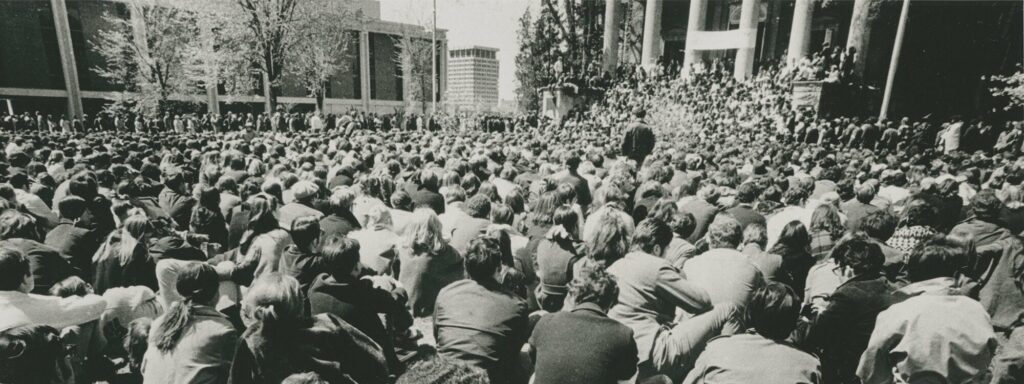László Molnárfi
This year proves that united as students, we can pressure the authorities and win on important issues. We stopped fee increases, rent hikes, discriminatory canteen policies and secured divestment from war-crimes. We mobilized in large numbers, earning the ire of university managers and government ministers alike. Hundreds joined various campaign groups, showing that our erstwhile apathy has been replaced by faith in collective action.
This upsurge in organizing, and the energy within, must be shifted from reactive to proactive campaigning. At the same time as pushing for reforms on bread-and-butter issues, we must develop a political programme of liberation, and articulate our vision for a new society.
If this year shows anything, it is that what exists must not necessarily exist. With grassroots involvement in the student union, we transformed it from a moderate organisation to a radical campaigns group. These grassroots structures pushed the student union to its limits, as they inverted traditional top-down leadership structures, and showed a glimpse of what student power unconstrained by bureaucracy can achieve. We mobilised around targeted, collective and winnable demands. Facing the worst excesses of the neo-liberal university, we won reforms. In this Goliath versus David fight, the power of the grassroots came out on top. Students will benefit from a fee and rent freeze next year, can now eat their homemade foods in the Buttery and will study in a university that is one step closer to being apartheid-free. By carefully choosing our tactics and strategy, we used direct action, or the threat thereof, to secure these wins.
The basis of our analysis was solidly grounded in critical theory. Using it, we understood our position with regards to the university as a power struggle. The university, like the rest of society, has become marketized, and pursues profit over valuing people. In order for the university to listen to us, we must show that we are a threat to their reputation and finances, and force senior management to the negotiating table. If our analysis, however, is grounded in this, then we must also acknowledge the limitations of our successes. The power of the university is forever held up by the state, whereas our power is based on fluctuations in political consciousness, interest and leadership amongst students, and the historical context, such as the explosion of the worldwide pro-Palestine movement.
To counteract our fragility, we institutionalise student power. This is based in groups such as Students4Change, Trinity BDS, the TCDSU Campaigns Group and the TCD Renters’ Solidarity Network. Yet, the university, and the state, will always hold the advantage of being powerful, perpetual and continuous. Therefore, it is necessary for us to engage in constant battles with the authorities over recurring proposals. We have been fighting fee increases and rent hikes forever. It is possible for students to win, but it is also possible for students to lose, and for our situation to worsen. Social justice movements have ebbed and flowed, but global society has grown ever-more right-wing, economically and socially, since the 2010s.
The student movement thus cannot remain reactive. By building institutional student power to fight proposals as they come before us, we are also building the capacity to project a political vision, so as to transform society. The creation of a new world, in which the issues we face are permanently put to an end, must be based on a principled program, developed in tandem with people outside of our universities. There is no separation between local issues faced by students on campus and wider societal issues. In the university, structures have been established that concentrate bureaucratic power in the hands of the few, and then prioritise profit over people, which is a mirror image of parliamentary democracy under capitalism. The move from reform to revolution is thus a necessary one, and must be aimed at the destruction of anti-democratic structures altogether, whether they be in the university or the state.
The institutions that rule us must be radically democratised. Everything must be run by grassroots assemblies, from the universities to workplaces and communities. The resources that we use to reproduce societal existence, and the means of production that we use to provide us with food, water and shelter, must be taken out of the hands of the few and into the hands of humanity. From the factories, farms, and houses, to the rivers, forests and beaches, we must stand against the capitalist present, and for a socialist future.




